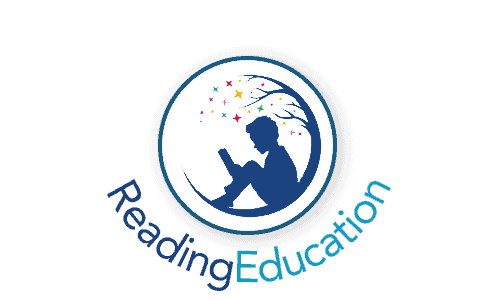Learning to read isn’t merely about reading books. For a child to fully grasp and absorb all facets of learning – reading included – it is vital to develop their ever-growing, sponge-like brains using a vast array of activities, tasks, and games, designed to help their grey matter work more efficiently, and, therefore, more effectively. In short, boosting their overall development is the quickest way to boost reading skills. So, in today’s article, we’re going to furnish you with five fun activities you and your six-year-old can do together to get their highly-receptive neurons firing on all cylinders.
12 Activities To Boost Reading Skills and Development in Six-Year-Olds
At this stage of their development, your child will most likely be reading independently; however, activities and games are still a useful tool for boosting phonics skills, language development, and word recognition. By the age of six, children will typically become far more aware of the world around them and the words they see, so make use of this at every given opportunity, be it on a menu, road signs, posters, newspapers etc.
#1 – Language Games
Making up and reciting rhymes, tongue twisters, and poetry is a fantastic way for your child to understand language further and broaden their vocabulary. Furthermore, playing language games has almost endless possibilities, and they can be played anywhere at any time. One of my favourite language games is “Guess the Animal”. Gives your child clues about the animal, seeing if they’re able to decipher the clues and figure out which animal you’re describing. Of course, this game isn’t just limited to animals; it can be done for just about everything in the world around you!
#2 – Phonic Activities and Games
As mentioned above, playing phonics activities is one of the most effective ways to complement learning at school; therefore, playing phonics games is something that is readily encouraged no matter where you are! While there are a wide array of phonics activities out there, here are a handful of our favourites:
Word Sounds: Using your child’s school reading books, ask them to find as many words as they can that begin or end in a particular sound.
Word Circle: Using magnetic letters, ask your child to spell a four or five-letter word, then ask them to change one letter each time until the original word is spelt out. For example, ‘dark-dart-part-park-dark’.
#3 – Memory Games
Short- and long-term memory is vital for reading development as the more words a child can recognise and remember, the more quickly they’ll progress through their learning-to-read journey. Mnemonics are a superb way of helping your child to remember certain things such as months, planets, colours of the rainbow etc. For example, ‘My very eager mother just served us nine pizzas’ (the nine planets). Another favourite is the Memory Tray Game, which involves placing several items on a tray, giving your child ten seconds to look at the items, then covering it before asking them to recite the items. Flashcards are also a brilliant learning tool for boosting short-term memory.
#4 – Listening Games
Listening and reading go hand in hand; therefore, improving your child’s listening skills will have a positive impact on their reading ability. Our two favourites are ‘Odd one out’ and ‘Yes/No game’. The former involves writing a list of words that have the same sounds, e.g. ‘part’, ’tart’, ‘heart’, including one word that doesn’t fit the same pattern, then asking your child to identify the odd one out. The latter is an age-old game that is a lot of fun! Ask your child to choose an animal, object, or person, answering yes or no to your questions until you’re able to figure out their chosen object/animal/person.
#5 – Action and Adventure Games
Learning and development aren’t just about staying inside and reading books; it’s also about getting out into the big wide world and learning there too! We’d be here for a very long time if we were to list all of the game you could play with your little one (!) but here are a few examples of some of what we think are the best:
Treasure Hunt: Create a treasure hunt or challenge game that requires your child to read and decipher clues to find the treasure.
Charades: A classic game but one that encourages children to think about words and actions, and how they can use them to create and figure out clues.
Word Board Games: Boggle is one of the best word board games for children and is certainly worth the investment.
#6 – Creativity Games
Fostering creativity not only helps your child to become more creative within every facet of learning, but it also helps them to understand stories and characters in the books they read. Use toys, dolls, and puppets to re-create stories you’ve read or ask your child to create their own account and characters. Or, why not play the dice game? Roll a dice and ask your child to think of a word that has the number of letters shown in the dice. This encourages quick thinking and understanding of how many letters certain words contain.
#7 – Technology Games
Although screen time should be limited, the use of technology shouldn’t be viewed in the same manner. Using technology is part and parcel of today’s world; therefore, it’s important to verse your child in how to use technology not only to for educational purposes but also how it can help them in life. Playing educational games on a computer, laptop, or game console, watching educational TV shows, and reading books and watching the corresponding movies are all fantastic ways to combine technology and learning. Always ask them to read any instructions or text on a screen, as this will help boost their reading skills as well as challenge them to attempt words they may not be familiar with.
#8 – Car Games
Learning games and activities should be encouraged at all times – even in the car! Car journeys can often be lengthy; therefore, it’s wise to put this time to good use and suggest games your child can play. For example, if a big truck passes by, ask them to make up a story about who is deriving the truck, where it is going, what’s inside it etc. But it doesn’t stop there. Ask your child to read any road signs they see and see if they can remember place names you came across on your journey.
#9 – ‘Everyday Life’ Games
We learnt to read to ensure we can function in everyday, ordinary life; therefore, it’s crucial to get your child into the habit of interacting with the written world around them. Given that the world around is full of words and numbers, this is very easily achieved, but here are a few examples:
- When you receive post, encourage them to read it out loud. If you’re cooking, ask them to read each step of the recipe.
- At mealtimes, ask them to read the back of packets or bottles.
- Use the World Wide Web to find out more information about their hobbies and interests.
#10 – Reading
An article dedicated to boosting reading skills wouldn’t be complete without reading being mentioned, so let’s see what reading-specific activities can help their development. By six, your child’s reading ability will be progressing readily; therefore, it’s imperative to complement their learning with activities at home. We suggest allowing your child to tackle books that are slightly about their reading age, as this will broaden their vocabulary and understanding of words and phrases. Being on hand to help them through difficult words or sentences and explain what certain words mean will help them to feel comfortable and secure, rather than anxious and lost if they were tasked with tackling more difficult books alone.
#11 – Maths
Increasing your child’s skills in other areas of learning will help to boost their confidence, which will directly translate to how confident they feel when learning in general – including when learning to read. Many children often struggle with maths, so introducing games and activities to progress their understanding of numbers is a fantastic way to boost confidence.
#12 – Cooking
Cooking with your little one is a superb way to combine reading and maths practise all in one. Ask them to read the recipe, tell you how much of certain ingredients you need, count out certain ingredients – even get them involved in the cooking process. The more fun and enjoyable it is, the more beneficial it will be! Plus, you get a delicious treat to enjoy at the end of it!

